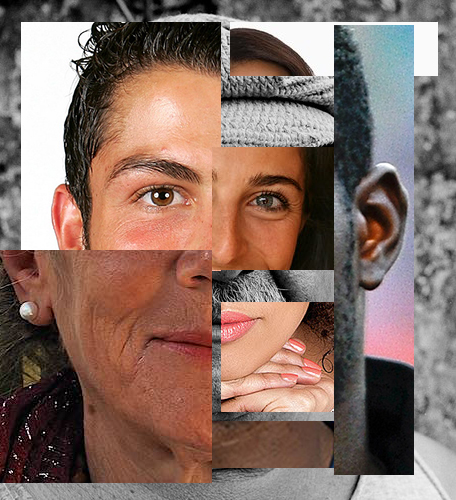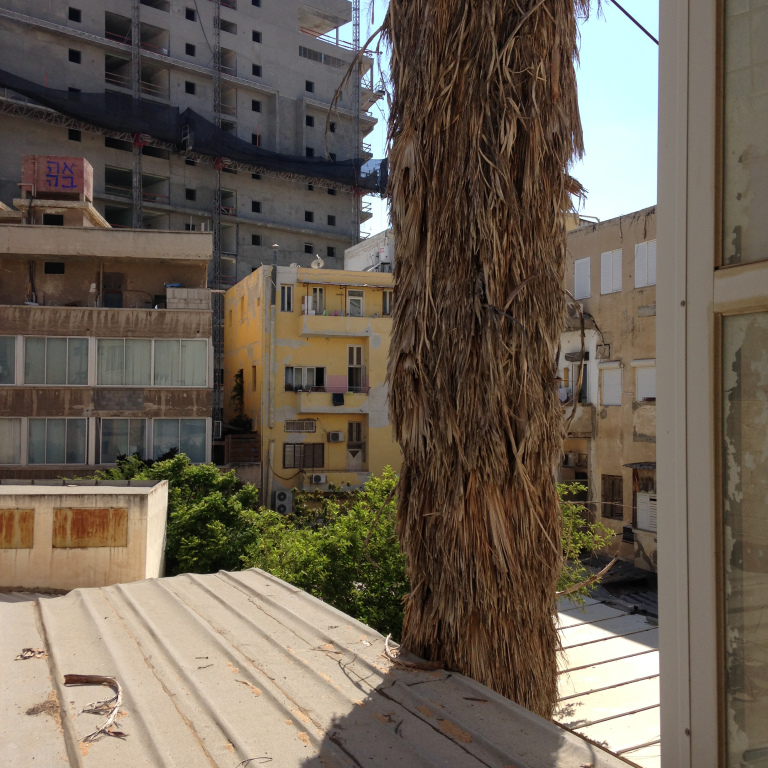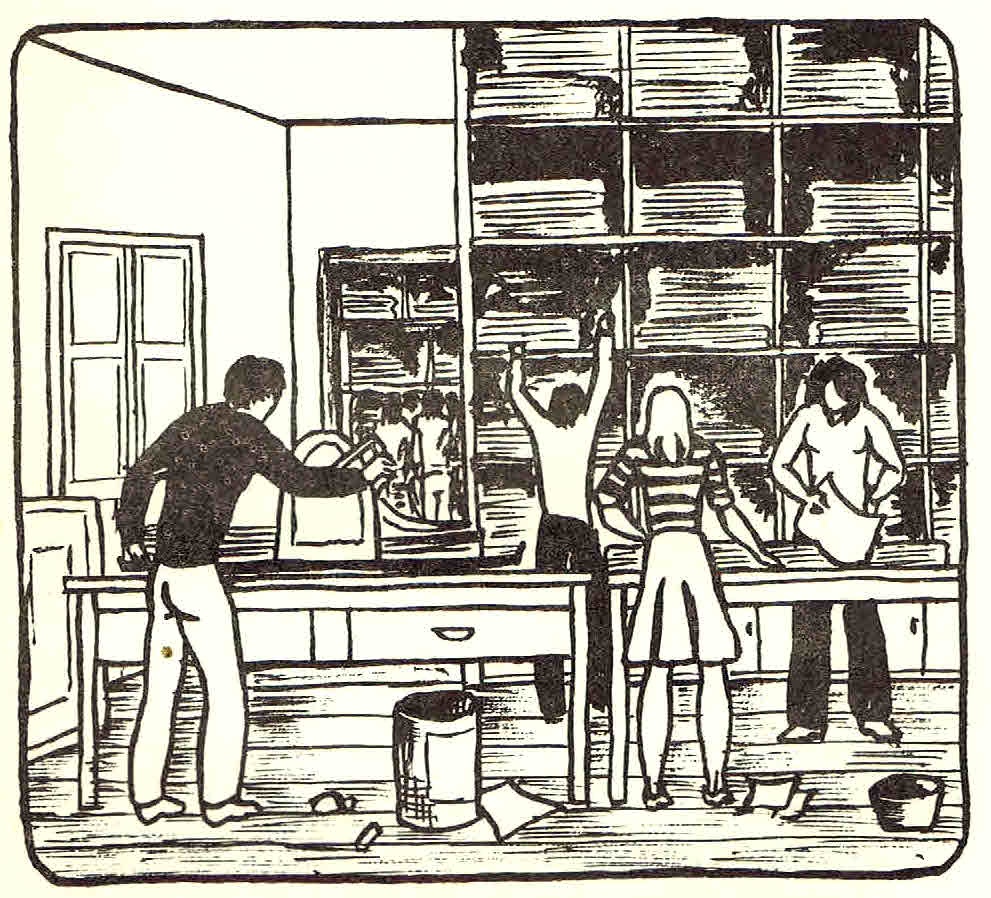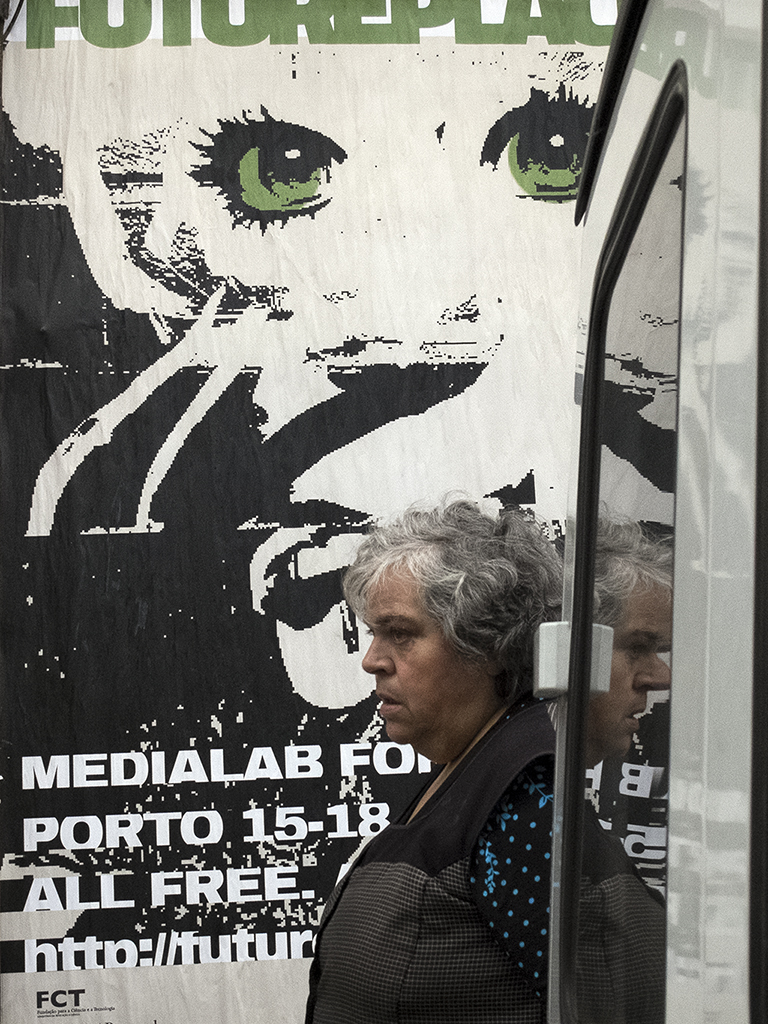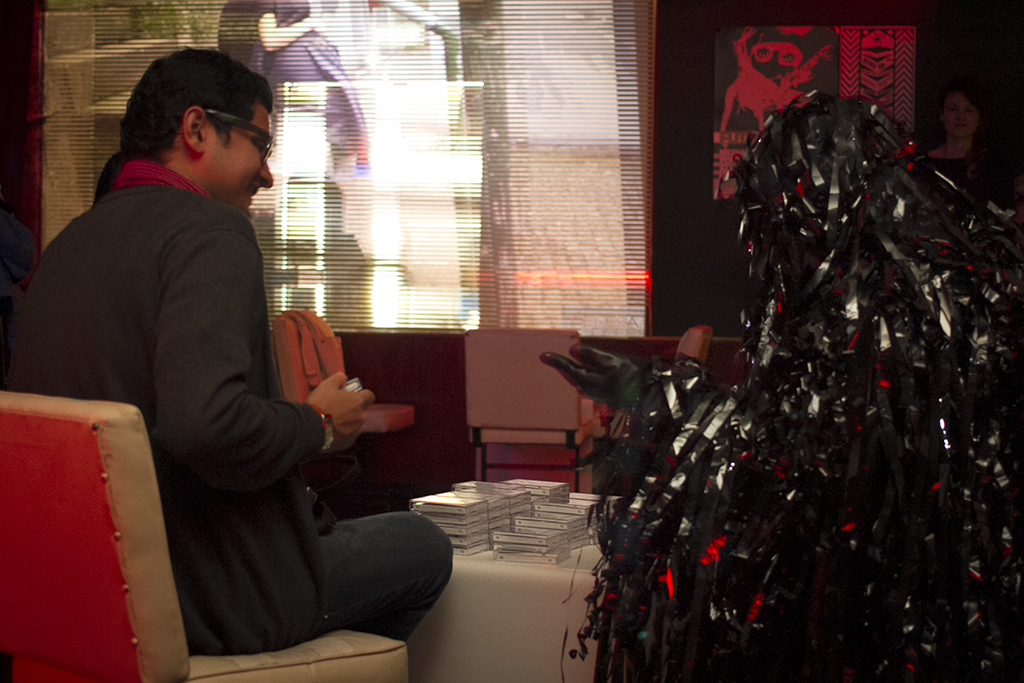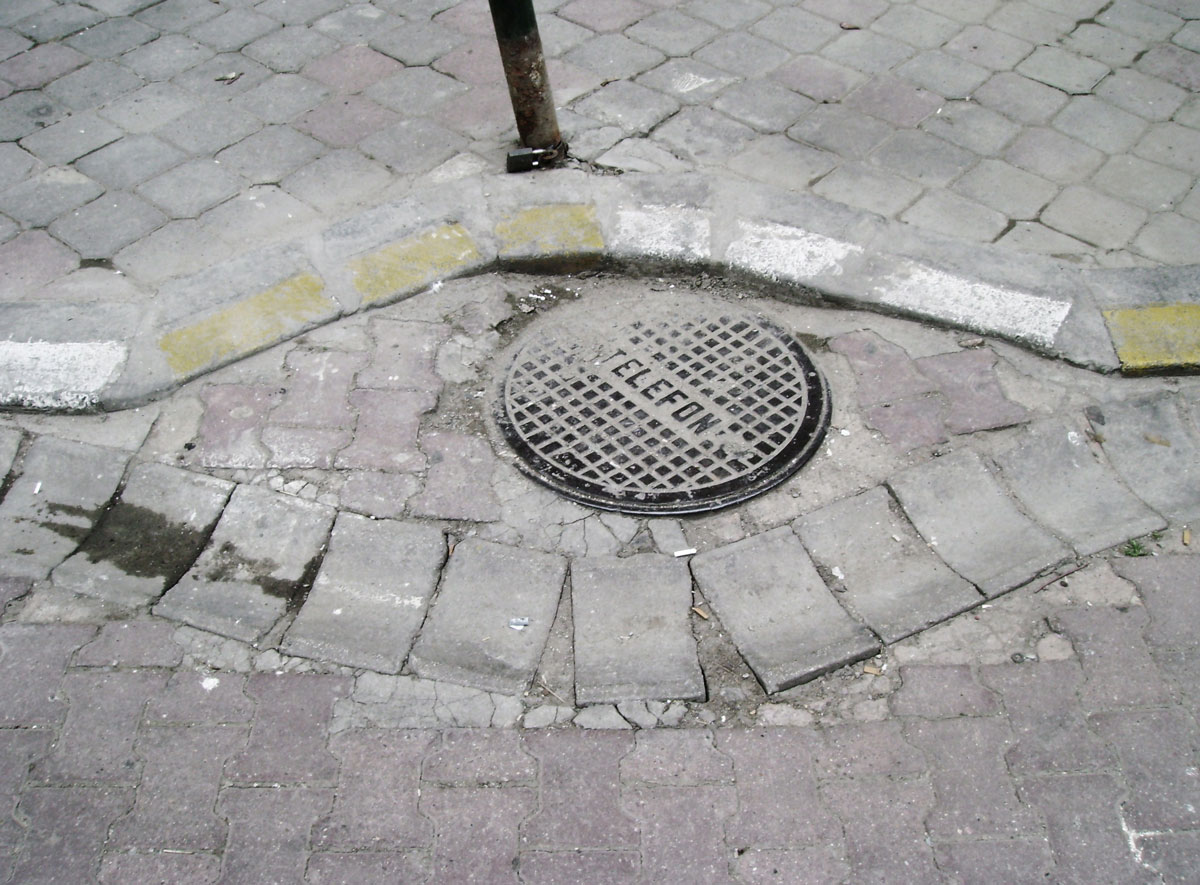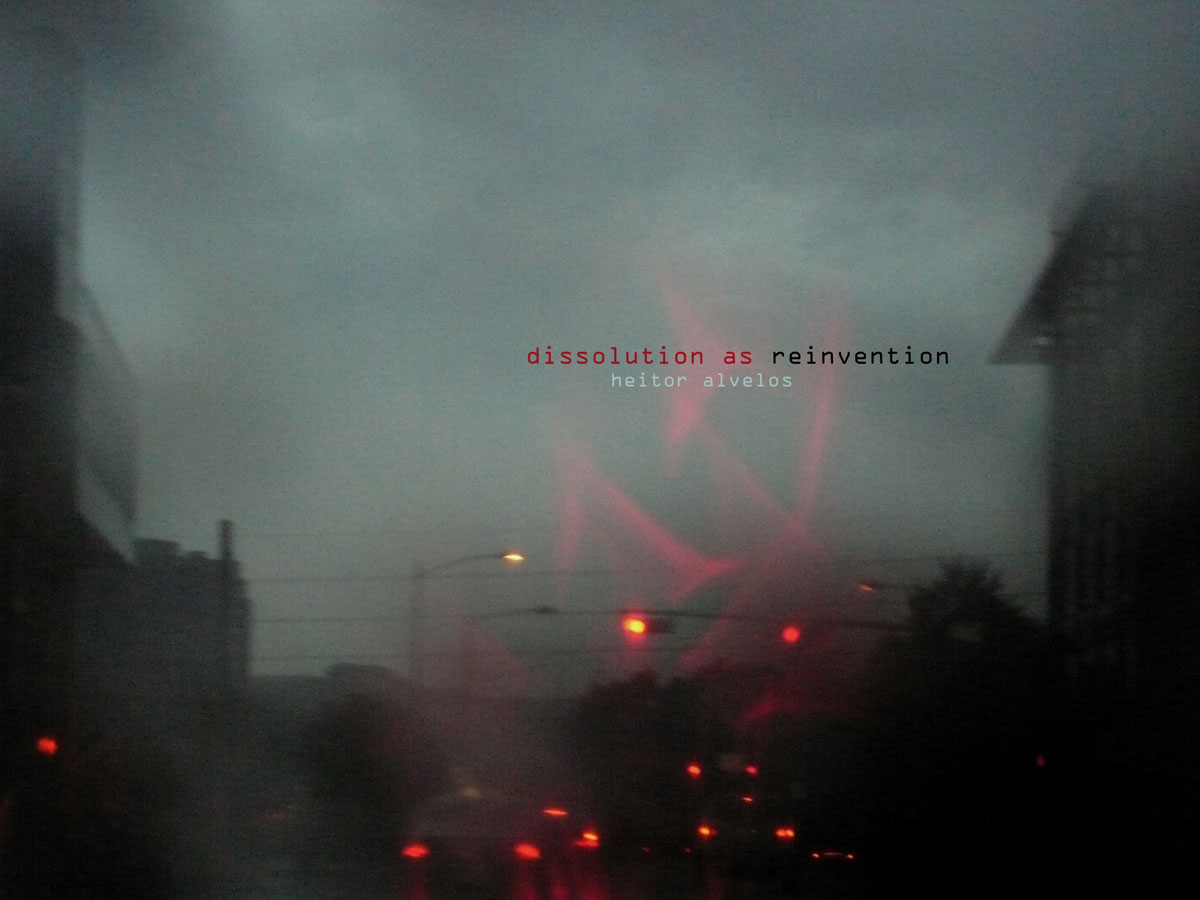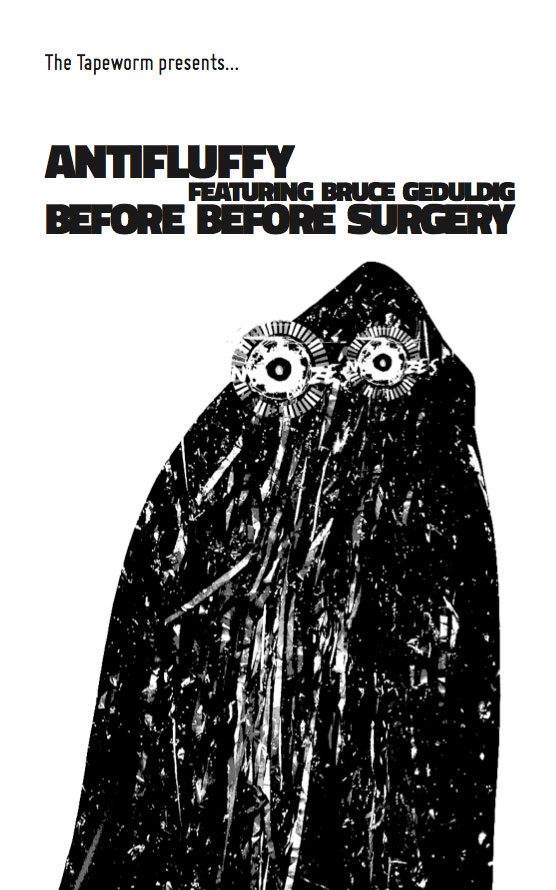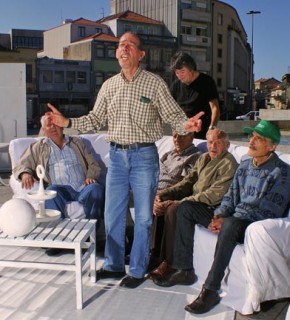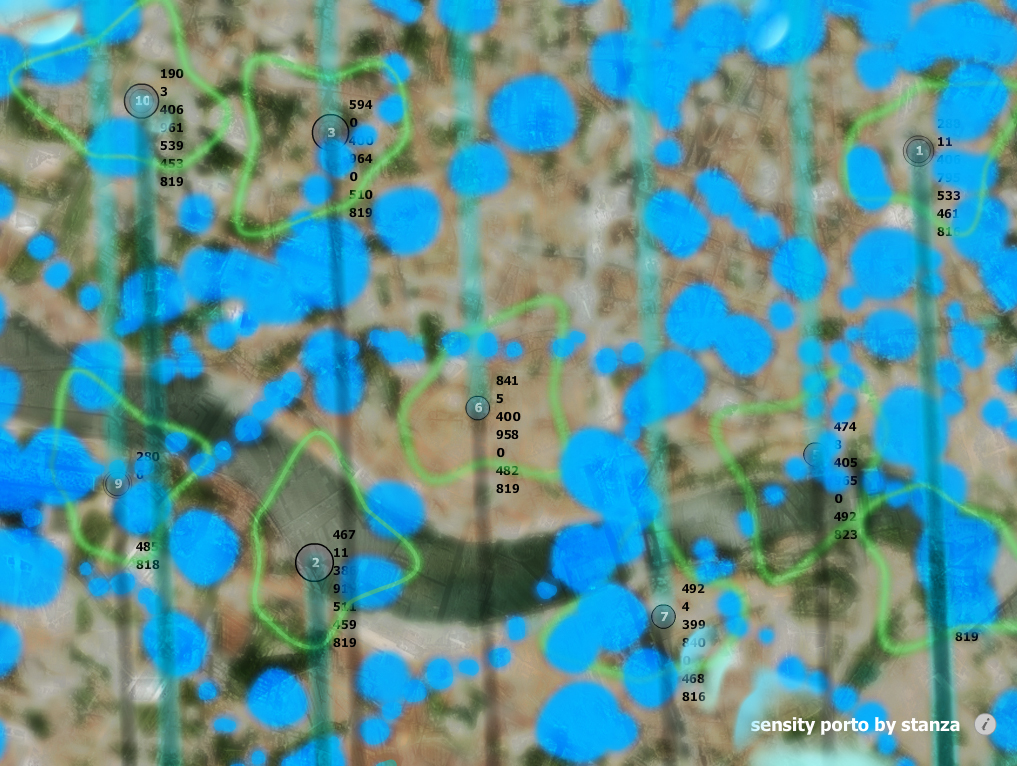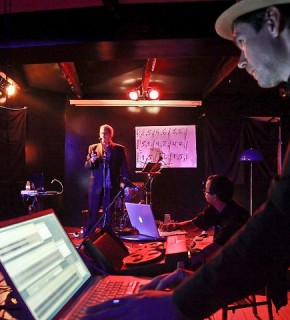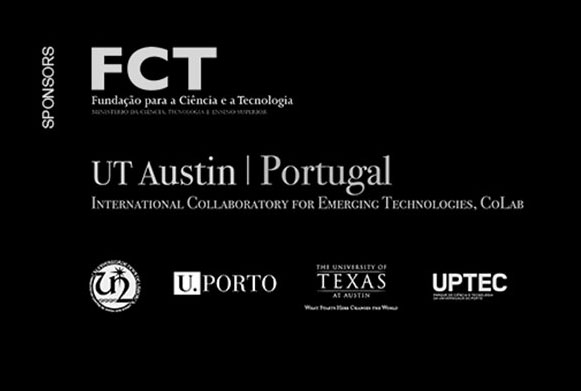
Heitor Alvelos, Summer 2009
On one year of futureplaces
The very Portuguese lack of tradition of social involvement is heavily documented and analyzed elsewhere. Whether the roots of this phenomenon are historical, cultural or even political is the subject of much speculation, but in any case the fact that the much-cherished “fado” (literally “fate”) is the quintessential Portuguese musical style may be a not-so-subtle hint of a certain modus operandi turned modus vivendi… We tend to accept any given scenario with resignation, and seem to further take some sort of perverse pride in this very resignation. Miracle or catastrophe, it is actually irrelevant – it is all about the fact that, as a people, we are all immersed in the understanding that reality originates from above, as a random succession of occurrences of obscure logic.
Regardless of where exactly this paralysis of action is rooted, its longevity has been reinforced by a social loop turned into semantic loop. We have had very few stable structures for public participation, and have thus long grown accustomed to being spectators of higher narratives – whether cultural, social, political historical or religious: the hero is always the other, and the other is interchangeably God, the President, a football champion, a local politician or a TV host. Hero or villain is often interchangeable in our minds: it is often a plain matter of vacuous protagonism, of innocuous celebration or mourning, devoid of consequence or accountability.
This historical narrative has woven a parallel reality into the country´s fabric. We have grown accustomed to precariousness, and have, in the meantime, begun to enjoy it: the regular expressions of outrage are spoken in hushed tones, often directed at daily occurrences, an endless exercise in rhetoric that reveals a profound addiction to the status it supposedly questions. Our imagination has been regularly hijacked by its own negative formulation: it only rears its head as an outraged refusal of existing and seemingly perpetual paradigms, but hardly ever dares propose alternatives. We contest outcomes, but do not scrutinize their causes, and certainly do not engage in alternative constructions. Urban space is altered randomly, just as we become European champions of some sport or another – yet the real tragedy is we hardly have a clue as to how or why these things happen. We simply shift between being hopeless and amazing in our own minds. The architect that ruins the structure of a public garden, preventing people from socializing by way of an unaccountable aesthetic vision of sorts, is hidden by this veil of fate. It just happened that way.
This scenario derives greatly from a strictly formal reading of reality, as opposed to a functional one. Entitlement comes from status (either by birthright or decree), as opposed to merit, and this effectively strangulates the willingness to act: we have long known there would be no inscription, no consequence of action – and thus no evolution, as the narrative is in essence circular and self-prophetic. The gap between tangible reality and its supposed agents has been too wide to allow for any semblance of coherence between the two. When an outlier occasionally surfaces, nothing much happens: the fabricated narrative of circularity will self-regulate in no time.
The lack of avenues for effective public involvement has tended to shut down imagination as an agent of change. This is why it has been so difficult to move forward, and this is why Portuguese art has struggled with (refused?) the evidence that it could cause a measurable impact on society: it fiercely hangs to the classical model of Art as Metaphor, or expression of individual exoticism. Creativity, in our minds, has been an exercise of reverie, not a prelude to action.
It is paradoxical that digital media, immaterial and post-geographical in essence, is surfacing as a true catalyst for contextual change. If, in its early days, the allure of online communication came precisely from its invitation to be “somewhere else”, the advent of social media has brought the possibility of “going somewhere” in order to transform our immediate surroundings. This transformation may occur in physical, material ways, but it inevitably begins in a shift of perception: in the case of social structures, it brings empowerment by radically changing a previously inert hierarchical construction. But it has also invited us to alter the way we look at our surroundings – and that, in effect, is already a radical change of those same surroundings.
It is now becoming less and less excusable to live out the epic of fatality. Reality may still be fatal for all we know – changes of this magnitude will certainly not take place overnight – but we can begin to look elsewhere, we can begin to look differently. The growing accessibility to technology, the advent of self-publishing and the emergence of the prosumer through the perfecting of user interfaces have all been fostering new ways of social involvement. On the other hand, the subtle and gradual merging of work and play through the evolution of online platforms (VR games, forums, chatrooms, etc.) has also translated into an added opportunity to change social fabrics without the cumbersome presence of militantness.
In essence, the challenge now resides not so much in an institutional shift, but in the realization that technology has empowered the individual to lead a myriad of interwoven shifts – the regular sprouting of all kinds of viral phenomena has made that much clear beyond any skepticism. So for the first time in History, we have institutions following individuals, scrutinizing their means and logic, attempting to learn from their processes. We have media labels struggling to come to terms with a free-flowing remix culture that has been advancing musical styles exponentially, we have museums asking visitors to record their own experiences while at the exhibitions, digital archives of enormous historical relevance born out of personal willingness and participation, online forums where citizens discuss and agree on how to better their immediate surroundings.
What is at stake is the flourishing of an affective sense of place born out of multiple contributions, the creation and enhancement of narratives and symbolic systems associated with tangible territories. This has been sorely lacking in the case of Portugal, where the prevailing narrative is still very much one of fuzzy tradition, of longing for a time we are not even sure ever existed. Thus the many online initiatives pertaining to specific locations around the world attest to the possible success of a contextual template that needs to be nurtured in its local version.
In a social landscape such as the Portuguese one, traditionally reliant on higher structures, this paradigm shift may have an impact beyond anything we can imagine. But this shift will only bear fruit once the individual realizes that, for better of for worse, it no longer makes sense to blame it all on a higher power, that a paradigm shift can only be enacted by h/er contribution.
The individual is now the key agent, and as such, the natural habitat for digital media is the local, one´s tangible space, one´s semantic space: it is simply a matter of time before we come to terms with this and act accordingly. Future Places is simply an attempt to make this as clear and effective as humanly possible.

